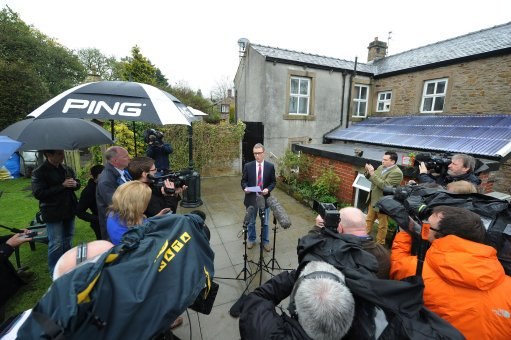Nearly three quarters of the public think the identities of people arrested on suspicion of sexual assault should be kept secret until they are charged
Over the weekend, Tory MP and Deputy House of Commons Speaker Nigel Evans was arrested on suspicion of rape and sexual assault. Evans has not yet been charged and has been released on bail. He will step aside temporarily from his role as Deputy Speaker and from his duties chairing the Queen's Speech as he fights the allegations, which he earlier called "completely false".
Currently the identity of some people involved in certain legal cases is always kept secret where as, for other cases, their names are made public.
According to new YouGov research, most Britons would support keeping suspects' names under wraps, at least until a charge is made, and many would support waiting to make the names public until after a trial.
Arrested, but not charged
When it comes to people arrested for questioning about crimes of sexual assault - but not yet charged for those crimes - nearly three quarters of the British public (74%) think their identities should be kept secret, compared to just 15% who said their identities should be made public.
Smaller majorities would say the same for people arrested on suspicion of domestic violence (72%), murder (64%), terrorism (58%) or other crimes (69%).
Charged, but not tried
Additionally, the public is split on whether to release the identities of people charged with sexual assault, but not yet deemed guilty or not guilty in court.
The findings come days after it was made public that Coronation Street actor William Roache had been arrested and charged by police with two counts of rape involving a 15-year-old girl. The allegations state that Roache committed the crimes in 1967.
45% say the identities of people charged of sexual assault should be made public before trial, compared to 43% who say his or her identity should be kept secret until a verdict is reached. Similarly, 47% say the identities of people charged with domestic abuse should be made public before they have been found guilty or not guilty, while 41% disagree.
Majorities do support revealing the identities of the accused individuals before trial in cases of alleged murder (54%) and terrorism (57%), however.
Historic allegations
In the same survey, it was also found that 14% of the British public support the view that “sometimes people accused of sexual offences should not be prosecuted if the offences took place many years ago”.
Such a limitation might affect the prosecution of the crimes Roache is accused of, or the prosecution of alleged historic abuses that have been investigated following the Jimmy Savile scandal.
However, more than seven in ten (71%) thought there should be no time limit on such prosecutions.










